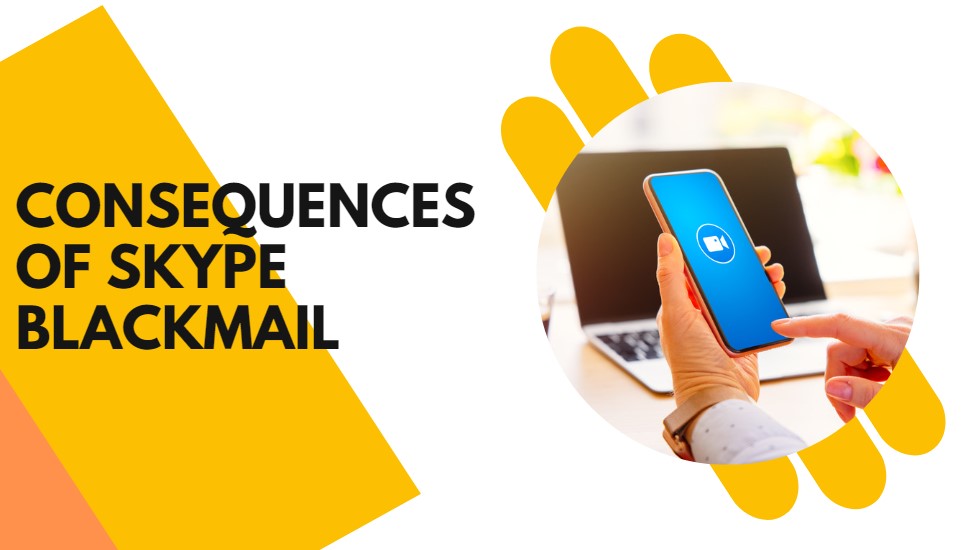
skype blackmail
Skype Blackmail
In the era of rapidly advancing technology, the internet has become an integral part of our daily lives, transforming the way we communicate and connect with others. However, this increased connectivity also comes with risks, as cybercriminals continuously find new ways to exploit unsuspecting individuals. One such method is known as Skype blackmail, where perpetrators target users of the popular video conferencing platform Skype to extort money or personal information. This article explores the concept of Skype blackmail, and its potential consequences, and offers practical tips to protect yourself from falling victim to these malicious schemes.
Understanding Skype Blackmail:
Skype blackmail involves malicious individuals who gain access to private conversations or compromising video footage of Skype users. They then threaten to expose this sensitive information to the victim’s contacts or publish it online unless a ransom is paid. Typically, the perpetrators employ social engineering techniques, phishing emails, or malware to gain unauthorized access to a user’s Skype account or compromise their computer’s webcam.

Consequences of Skype Blackmail
The Consequences of Skype Blackmail:
The repercussions of falling victim to Skype blackmail can be severe, both personally and professionally. Victims often experience extreme distress, anxiety, and a loss of privacy. If compromising material is made public, it can lead to reputational damage, strained relationships, and potential harm to one’s personal and professional life. Moreover, paying the ransom does not guarantee that the perpetrators will delete or refrain from sharing the compromising content, perpetuating the victim’s vulnerability.
Protecting Yourself from Skype Blackmail:
Strengthen Your Online Security:
- Use strong, unique passwords for all your online accounts, including Skype. Consider using a password manager to securely store and generate passwords.
- Enable two-factor authentication (2FA) for your Skype account and other sensitive online platforms to add an extra layer of security.
Be Cautious of Suspicious Links and Emails:
- Avoid clicking on links or downloading attachments from unknown or unverified sources, as they may contain malware or lead to phishing websites.
- Be vigilant about phishing emails that impersonate legitimate organizations or contacts. Verify the sender’s email address and refrain from sharing personal information through email.
Secure Your Webcam and Microphone:
- Keep your operating system and applications up to date to ensure you have the latest security patches.
- Use a reliable antivirus software program to detect and remove any potential malware on your computer.
- Cover your webcam with a physical barrier when not in use to prevent unauthorized access.
Review and Adjust Your Privacy Settings:
- Regularly review and adjust the privacy settings on your Skype account. Limit who can contact you, view your profile, and access your personal information.
- Be cautious when accepting friend requests or engaging in conversations with unknown individuals.
Maintain Open Communication with Your Contacts:
- Inform your close contacts about the risks of Skype blackmail and encourage them to be vigilant as well.
- Establish a trusted support network, so that if you encounter any suspicious activity or threats, you can seek advice and assistance promptly.
Conclusion:
As technology continues to evolve, it is crucial to remain vigilant and take proactive steps to protect ourselves from emerging cyber threats. Skype blackmail is a concerning phenomenon that can have far-reaching consequences for individuals who fall victim to it. By adopting best practices for online security, being cautious of suspicious emails and links, securing your webcam and microphone, reviewing privacy settings, and maintaining open communication with your contacts, you can reduce the likelihood of becoming a target of Skype blackmail. Remember, staying informed and exercising caution is the key to navigating the digital landscape safely and securely.
Victims of “Webcam Blackmail” and “Skype Blackmail” are growing in number daily. Don’t be the next one! It’s time to take a stand against digital predators who aim to exploit innocent individuals through threatening tactics.
Contact us today, because your online safety and privacy matter! Don’t give the opportunists a chance to take advantage of you.



